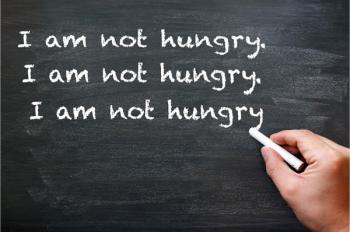[fusion_builder_container background_color=”” background_image=”” background_parallax=”none” enable_mobile=”no” parallax_speed=”0.3″ background_repeat=”no-repeat” background_position=”left top” video_url=”” video_aspect_ratio=”16:9″ video_webm=”” video_mp4=”” video_ogv=”” video_preview_image=”” overlay_color=”” overlay_opacity=”0.5″ video_mute=”yes” video_loop=”yes” fade=”no” border_size=”0px” border_color=”” border_style=”solid” padding_top=”20″ padding_bottom=”20″ padding_left=”” padding_right=”” hundred_percent=”yes” equal_height_columns=”no” hide_on_mobile=”no” menu_anchor=”” class=”” id=””][fusion_builder_row][fusion_builder_column type=”1_1″ last=”yes” spacing=”yes” center_content=”no” hide_on_mobile=”no” background_color=”” background_image=”” background_repeat=”no-repeat” background_position=”left top” hover_type=”none” link=”” border_position=”all” border_size=”0px” border_color=”” border_style=”” padding=”” margin_top=”” margin_bottom=”” animation_type=”” animation_direction=”” animation_speed=”0.1″ animation_offset=”” class=”” id=””][fusion_text]I recently read an article from the LA Times web site, “Diet and exercise alone are no cure for obesity, experts say,” and have been thinking about it ever since. While the title is designed to be an eye-grabber, the point of the article is not to argue that diet and exercise are ineffective tools for weight-loss, but rather that they are seldom enough on their own to help someone lose a significant amount of weight and keep it off long-term, especially if the person has been obese (BMI greater than 30) for a sustained length of time. The article is based on a scholarly paper recently published online by a group of weight loss experts (see citation at the end of this post). While it paints a rather bleak outlook for weight-loss and weight-loss maintenance, there are several interesting topics it raises.
Dieting triggers anti-weight-loss response
In the original work, the experts argue that once you have been obese for an extended period of time, biological changes take place that make it difficult to lose weight and even harder to keep it off for the rest of your life. They suggest dieting triggers our body to react as if it’s trying to prevent starvation. In addition, being severely overweight causes changes over time that help maintain, or even increase, our highest adult weight. In this paper, Christopher Ochner, the lead author, suggests that healthcare professionals go beyond suggesting we eat less and move more, saying, “mere recommendations to avoid calorically dense foods might be no more effective for the typical patient seeking weight reduction than would be a recommendation to avoid sharp objects for someone bleeding profusely.” (Ochner) Now that’s knee-slapping humor for a medical journal!
Surgery is NOT the only solution
 Ochner emphasizes the odds against achieving a healthy weight and maintaining it after having been obese for an extended time. In the paper, he says, “few individuals ever truly recover from obesity,” and points out that individuals who have re-attained a healthy weight still have what he calls, “obesity in remission.” (Ochner) While this may be accurate, he then goes on to claim, “surgery is the only available treatment to show long-term effectiveness,” (Ochner) and in the LA Times article, he is quoted as saying, “the average adult with sustained obesity has less than a 1% chance of reattaining and maintaining a healthy body weight without surgery.” While I agree with much of his message, I respectfully disagree with his assertion that research supports the position that surgery is the only therapy to show long-term effectiveness. This contradicts the findings of Dr. David Murdy’s research presented at the 2005 NAASO annual scientific meeting in Vancouver, which favorably compared non-surgical and surgical outcomes (15.5% and 31.1% weight loss at four years respectively), as well as the very impressive work done by the National Weight Control Registry (http://www.nwcr.ws/Research/default.htm), which tracks over 10,000 people who have lost significant amounts of weight and kept it off for long periods of time.
Ochner emphasizes the odds against achieving a healthy weight and maintaining it after having been obese for an extended time. In the paper, he says, “few individuals ever truly recover from obesity,” and points out that individuals who have re-attained a healthy weight still have what he calls, “obesity in remission.” (Ochner) While this may be accurate, he then goes on to claim, “surgery is the only available treatment to show long-term effectiveness,” (Ochner) and in the LA Times article, he is quoted as saying, “the average adult with sustained obesity has less than a 1% chance of reattaining and maintaining a healthy body weight without surgery.” While I agree with much of his message, I respectfully disagree with his assertion that research supports the position that surgery is the only therapy to show long-term effectiveness. This contradicts the findings of Dr. David Murdy’s research presented at the 2005 NAASO annual scientific meeting in Vancouver, which favorably compared non-surgical and surgical outcomes (15.5% and 31.1% weight loss at four years respectively), as well as the very impressive work done by the National Weight Control Registry (http://www.nwcr.ws/Research/default.htm), which tracks over 10,000 people who have lost significant amounts of weight and kept it off for long periods of time.
Use a tailored approach plus long-term support
While it is disappointing that hi-protein, meal replacement therapy is not included in the review of treatment options, the paper does urge clinicians to provide multimodal treatment that includes biologically based interventions designed to offset the body’s natural anti-weight-loss defenses. These treatments might include hi-protein meal replacements, highly structured diets, increases in physical activity, weight-loss and appetite suppressing drugs, and even bariatric surgery when appropriate. For the best outcomes, these treatments should be combined with highly structured lifestyle modification, medical supervision when appropriate and long-term support.
Magic 300 calories!
 It is particularly interesting that the paper quantifies the metabolic discrepancy between a formerly obese individual and someone of the same weight who was never obese, saying “Patients who achieve significant weight loss via lifestyle change are likely to become more metabolically efficient and will have to ingest up to 300 fewer (or burn up to 300 more) calories per day… to maintain that weight.” (Ochner) In other words, after struggling for months to lose weight I will have to watch my caloric intake even closer if want to keep the weight off! While I don’t find this notion especially inspiring, it does line up well with my past weight loss experiences. All in all, an interesting article I recommend you read, but as with anything… let your common sense be the judge of what you take away… and be sure to post your comments below.
It is particularly interesting that the paper quantifies the metabolic discrepancy between a formerly obese individual and someone of the same weight who was never obese, saying “Patients who achieve significant weight loss via lifestyle change are likely to become more metabolically efficient and will have to ingest up to 300 fewer (or burn up to 300 more) calories per day… to maintain that weight.” (Ochner) In other words, after struggling for months to lose weight I will have to watch my caloric intake even closer if want to keep the weight off! While I don’t find this notion especially inspiring, it does line up well with my past weight loss experiences. All in all, an interesting article I recommend you read, but as with anything… let your common sense be the judge of what you take away… and be sure to post your comments below.
You can view the LA Times article here: http://lat.ms/1AjziY8
References
Ochner, Christopher, Adam Tsai, Robert Kushner, and Thomas Wadden. “Treating Obesity Seriously: When Recommendations for Lifestyle Change Confront Biological Adaptations.” The Lancet Diabetes & Endocrinology (2015). The Lancet Diabetes & Endocrinology. Elsevier Inc. Web. 18 Feb. 2015. <http://www.thelancet.com/journals/landia/article/PIIS2213-8587(15)00009-1/abstract>.
Murdy, David. “Four Year Comparison of Surgical and Non-Surgical Interventions in an Insurance Company Weight Management Program.” North American Association for the Study of Obesity (2005). Annual Scientific Meeting. October 15–19, 2005.[/fusion_text][/fusion_builder_column][/fusion_builder_row][/fusion_builder_container]






This was an interesting article. I have ever thought of myself as in remission after losing 100 pounds over 7 years ago. I always believed that those fat cells are lying in wait to expand again. I also know that I cannot consume near the calories the others I live with can and maintain my weight or lose. I certainly can’t “waste” any of my precious calories on high carb foods. The article makes a lot of sense to me.
@cheryl – you certainly are qualified as an expert on weight-loss maintenance after the length of time you’ve been successful. How do you feel about the author’s assertion that surgery is the ONLY treatment for long-term weight control? I’m interested in your opinion.